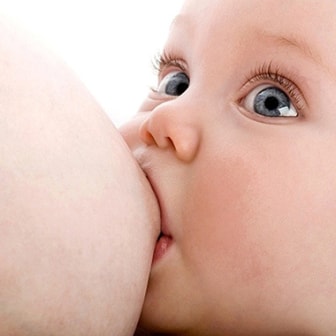10 cases where you absolutely should not breastfeed your baby
Breast milk is a very good source of nutrition for children's development, but in the following cases, if you intentionally breastfeed your baby, your baby's health will be threatened.
Mom is taking medicine
When the mother has symptoms such as fever, cold and needs to be treated with medicine, she should not breastfeed at that time. When giving the baby formula, pay attention to ensure the right time so that the baby does not go hungry.
Mother has tuberculosis
Especially during the period of disease progression, do not look after, care for and breastfeed the baby. Otherwise, it is harmful to the health of the baby and also to your own health.
Mother has heart disease, diabetes...
When the mother has heart disease, kidney disease, diabetes, she needs to see a doctor for diagnosis and advice on whether or not to breastfeed. Normally, mothers with these diseases can still breastfeed, but must pay attention to their diet and appropriate rest time.
In addition, doctors also advise that when suffering from the above diseases, it is best for mothers to shorten the breastfeeding time and wean their babies early or switch to formula milk.
 |
Mother has epilepsy
When breastfeeding and having epilepsy, it will harm the baby, very dangerous. Moreover, the milk of these mothers contains drugs such as Luminal, Vilium, Phenytoin sodium... which can cause bad reactions to young children, causing the child to develop diseases: sleepiness, black rash all over the body...
Mother has hepatitis
HBsAg can be transmitted to the baby through breast milk and is detrimental to the mother's recovery. These mothers absolutely must not kiss their babies, let alone feed them.
Mother has HIV
The National Committee for AIDS, Drug and Prostitution Prevention and Control has recommended that HIV-infected mothers should not breastfeed because HIV is present in breast milk and can be transmitted to the child during breastfeeding.
Therefore, HIV-infected women should feed their children with a milk substitute. According to experts, the effective substitute for breast milk is powdered milk; breast milk should not be replaced with fruit juice, sugar water, porridge or powder.
Exclusive breastfeeding is an effective way to reduce the risk of HIV infection in children whose mothers are HIV positive. If followed strictly, the risk of mother-to-child transmission of HIV is eliminated.
 |
Mother has mastitis
Mothers who show signs of mastitis or nipple ulcers should stop breastfeeding.
Radioactive iodine treatment
When a mother is undergoing radioactive iodine treatment, it is very likely that the iodine will enter the milk and cause damage to the baby's thyroid function. Therefore, after the treatment is completed, the mother should have the level of radioactive substances in her breast milk checked. If the level does not cause any problems, she can continue breastfeeding.
Exposure to chemicals or pesticides
Babies can be poisoned if they drink breast milk contaminated with these substances. Therefore, when breastfeeding, it is best for mothers to avoid contact with active ingredients such as pesticides, herbicides, etc. and stay away from toxic environments.
After exercise
During exercise, the body will produce lactic acid, milk containing lactic acid will turn sour and make the baby lose appetite. According to tests, in general, with moderate exercise, the body still produces this acid. Therefore, mothers who are breastfeeding should limit strenuous exercise, and rest after exercise before feeding the baby.
According to AloBacsi.vn






